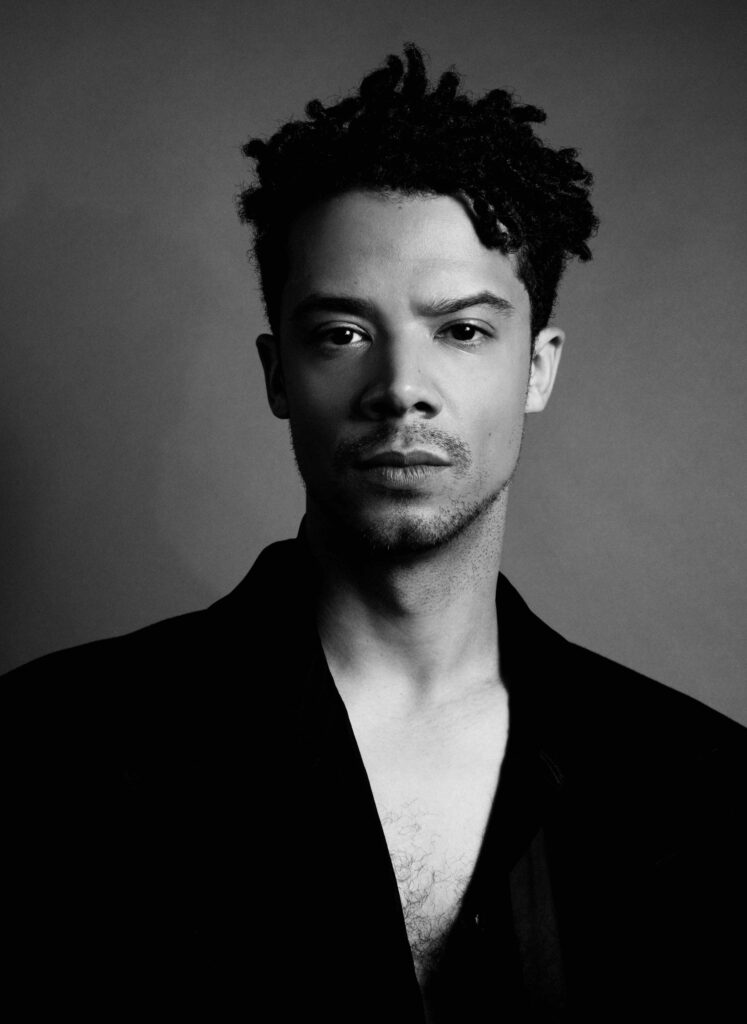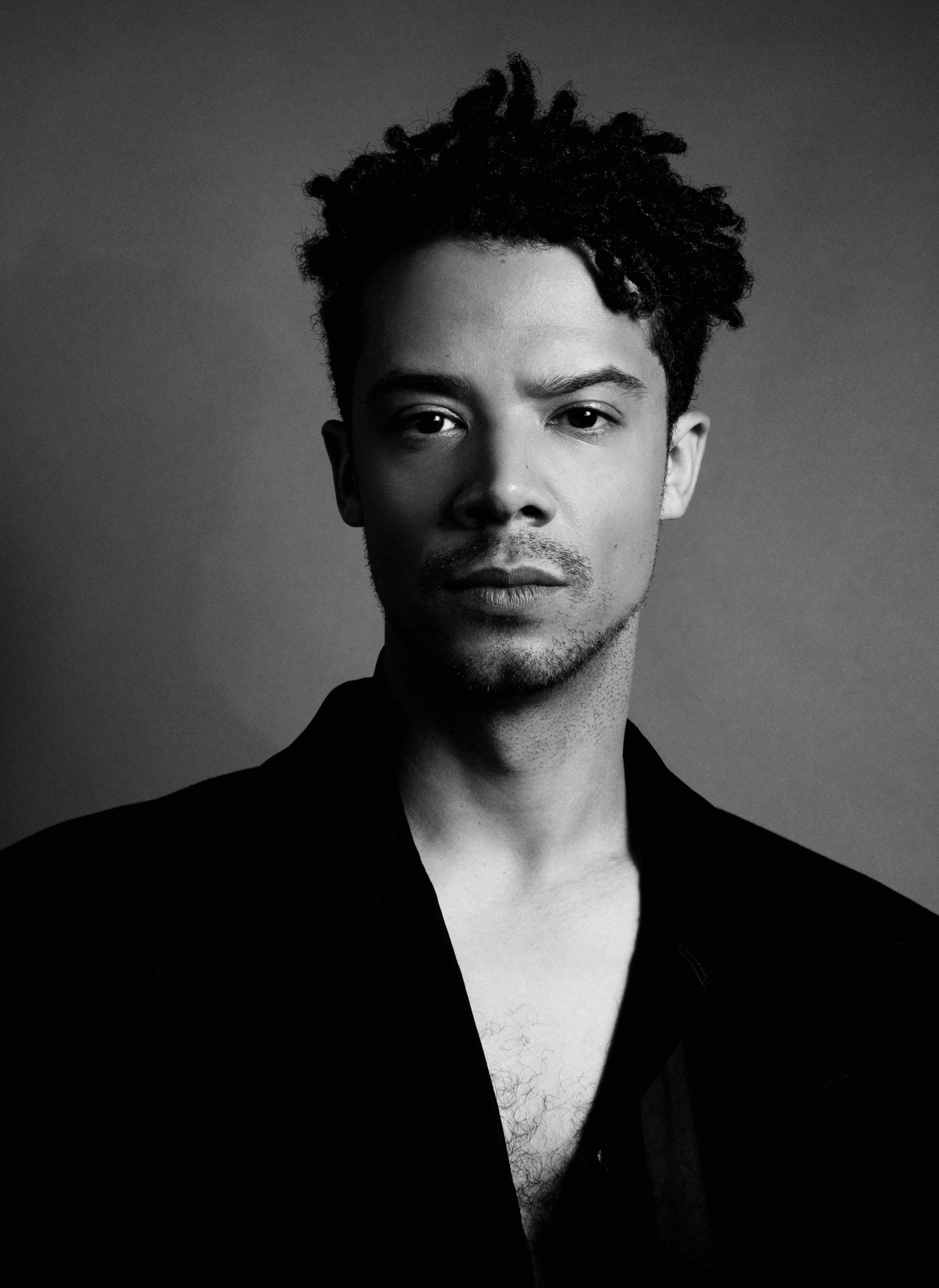When Jacob Anderson was a kid, he liked to think of films as vacations. Gone was his own world the second the television screen flicked on, and into a fantasy he happily entered. He wouldn’t have told you this then, but storytelling did something for him that real life didn’t. Characters in his shows could articulate feelings the young boy didn’t yet know how to—they could clear the static from his racing mind.
In school, storytelling was the one thing Anderson knew how to do. Where he didn’t excel in academics, he thrived in class productions, so his transition into acting wasn’t one met with much surprise. From age 16 onward, Anderson became his character through research and relentless work, extending his empathy to the fictional people that his face would come to represent. Known for his role as Grey Worm in Games of Thrones and dozens of other series, it seemed the UK native had his routine down. That is until he met Louis.
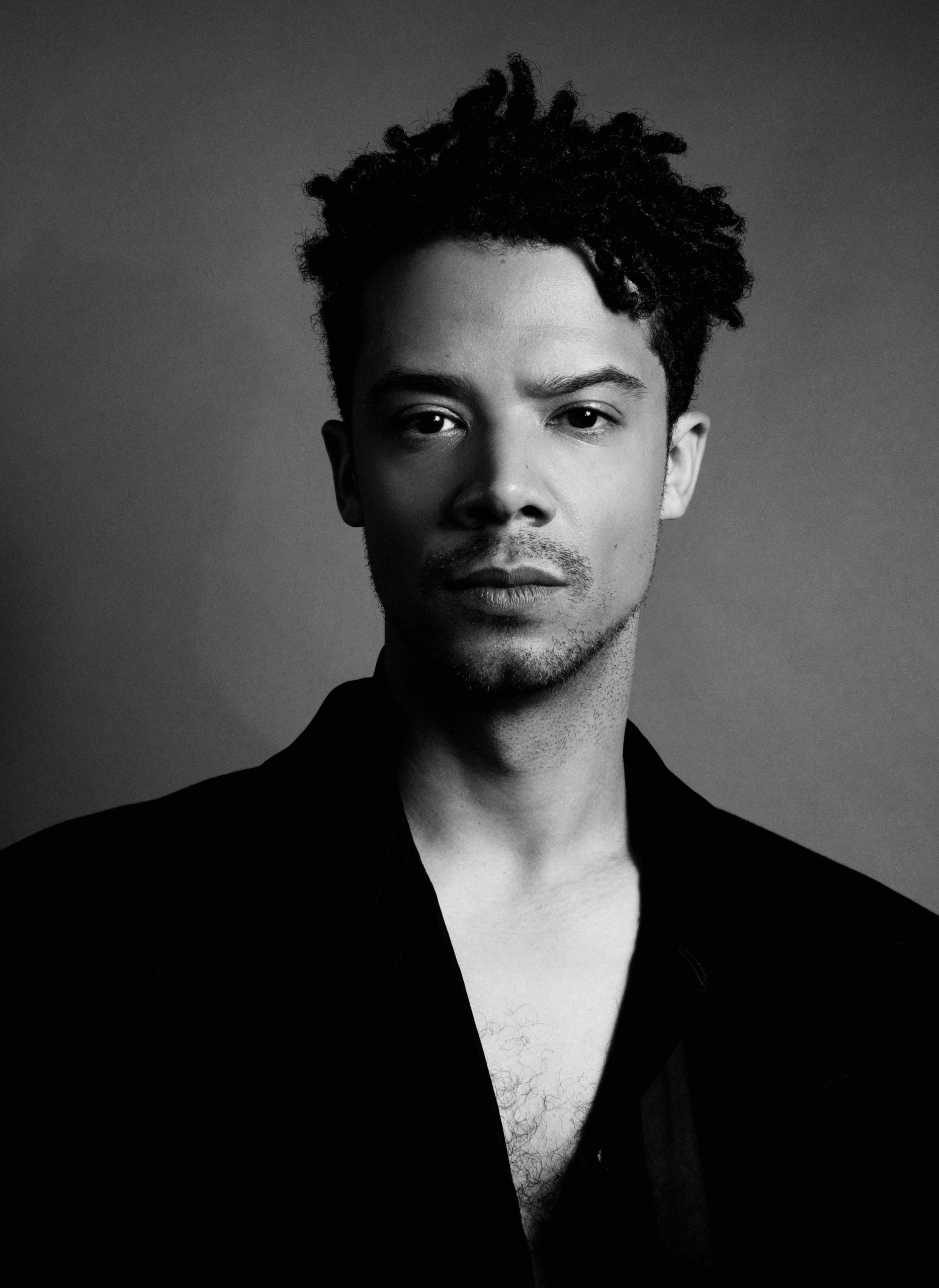
One read-through of Anne Rice’s Interview with the Vampire, and the actor knew this role was different. The gothic horror TV show—adapted from Anne Rice’s 1976 novel—follows vampire Louis de Pointe du Lac as he navigates a lifetime of grief, love, and shame, recounting his story to journalist Daniel Molloy. But underneath the character’s immortality, Anderson couldn’t help but notice a humanness, one that he was surprised to relate to. “I felt like the script understood something about me that I was still trying to understand about myself,” he says, “Acting [used] to be a thing I did because I could get out of my own head and be somebody else for a bit. This felt like the opposite.”
Keep reading for VMAN’s interview with Anderson, as the actor talks landing the role of Louis and the therapeutic nature of playing the self-searching vampire.
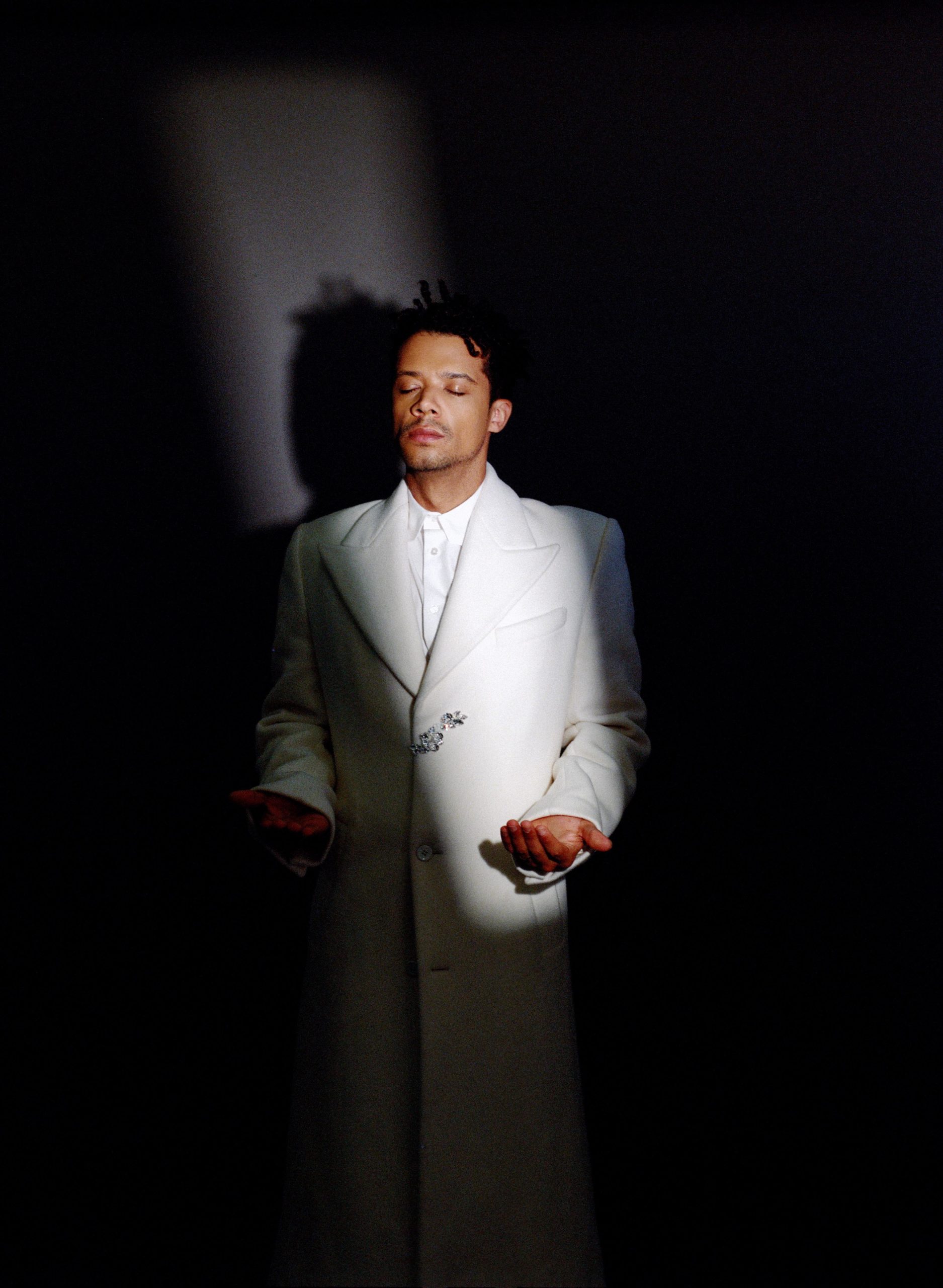
VMAN: Do you remember when you first fell in love with acting? Was it something you explored as a kid?
JACOB ANDERSON: Yeah, I got attention as a kid by acting out. I always loved stories and I watched a lot of TV and movies, and I felt like films were a holiday—a vacation where you get to go to a completely different world and experience different kinds of people and see what makes them tick. I wasn’t thinking of it on that level when I was a kid, but it always felt like an escape, and as I got older that was what drew me to it. Even the school play, for instance. I didn’t get good grades and I wasn’t very attentive at school, but I would get cast in school plays, and always do a good job in them. I’d get praise, even though at the time I would have said that I didn’t care what teachers thought. But I really did need praise, and I got it through that. As I got older, it was about not wanting to be in my head too much. It was quite a useful way to exercise empathy and just be somebody else for a bit.
VMAN: Once you discovered you had this knack for acting, how did you go about developing your craft?
JA: I didn’t train in any traditional sense. I started acting professionally at 16 and I dropped out of college, because I got a part in The Bill. I did a few jobs in that that first year when I was 16, and then I got cast in a film. At the time I was trying to go to film school, then a term and a half later I got a job as an actor and had to leave college. I told myself that I would make sure that on every job I got as an actor, I would pay attention and take note of what everybody was doing. How a set was run, how are the actors were. I’d ask a lot of questions of everyone and anyone. I was just really curious. That’s how I worked on it. Every time you do something, you learn from it, and you take what you learn onto the next thing, and you leave the things that didn’t work on the last thing.
VMAN: That’s a great philosophy, using each experience as a learning experience.
JA: Yeah, I think I always learn better from watching people and asking questions, than in any academic way.
VMAN: Can you tell us more about the first job that you ever got? The first of those experiences?
JA: I think I still haven’t really processed that first big job, to be honest. 15-16 years on, I’m still processing. It was really challenging. I was 17, I’d never worked on a film before, and the director was sort of my mentor. Took me under his wing, but also picked on me as well and was a bit of a bully. That confused me quite a lot. I left that job in some ways thinking, “Well, I never want anybody else to feel the way that I felt at certain points on that job. It doesn’t ever need to be like that.” But it also did a lot of good. For me, I’m still proud to have been a part of that. It was a low budget film with an amazing crew of people that just wanted to make it happen. I really loved that energy, I loved that spirit. On Interview with the Vampire, there was no bad behavior, but it felt scrappy in some ways. We were working nights, people were away from their families, and its challenging material. People clumped together as a team and supported each other.
VMAN: Since you mention the show, let’s talk about how you landed that role. What was the character development process like for your character Lewis?
JA: There’s so many things about Louis that I relate to. So many things that when I read the script for the first time, I felt really seen. I felt like the script understood something about me that I was still trying to understand about myself, or that I already knew about myself. I think Louis processes the world in a very similar way to how I process the world, so a lot of it was about figuring out how you portray somebody over such a large span of time. Like, what does someone keep with them? What do you respond to, and what are the things that have such a large effect on you that you could never let them go? For Louis, it was about finding those moments, finding those little ticks, and those tells that he has in in the modern day that inform each era that we see of Louis in his life. Something that I did do early on, was doing all of my prep, learning my lines, understanding the story and what I’m saying, and then make decisions about Louis and keeping those decisions as structures. There are the decisions that are already made on the page, and then the choices I made myself. You keep those structures, and then you do it one a day at a time. It’s such a huge undertaking to hold 150 years of this person every day, and having to keep referring backwards and forwards to where we’re going and what we’ve already shot and what we’re going to shoot.
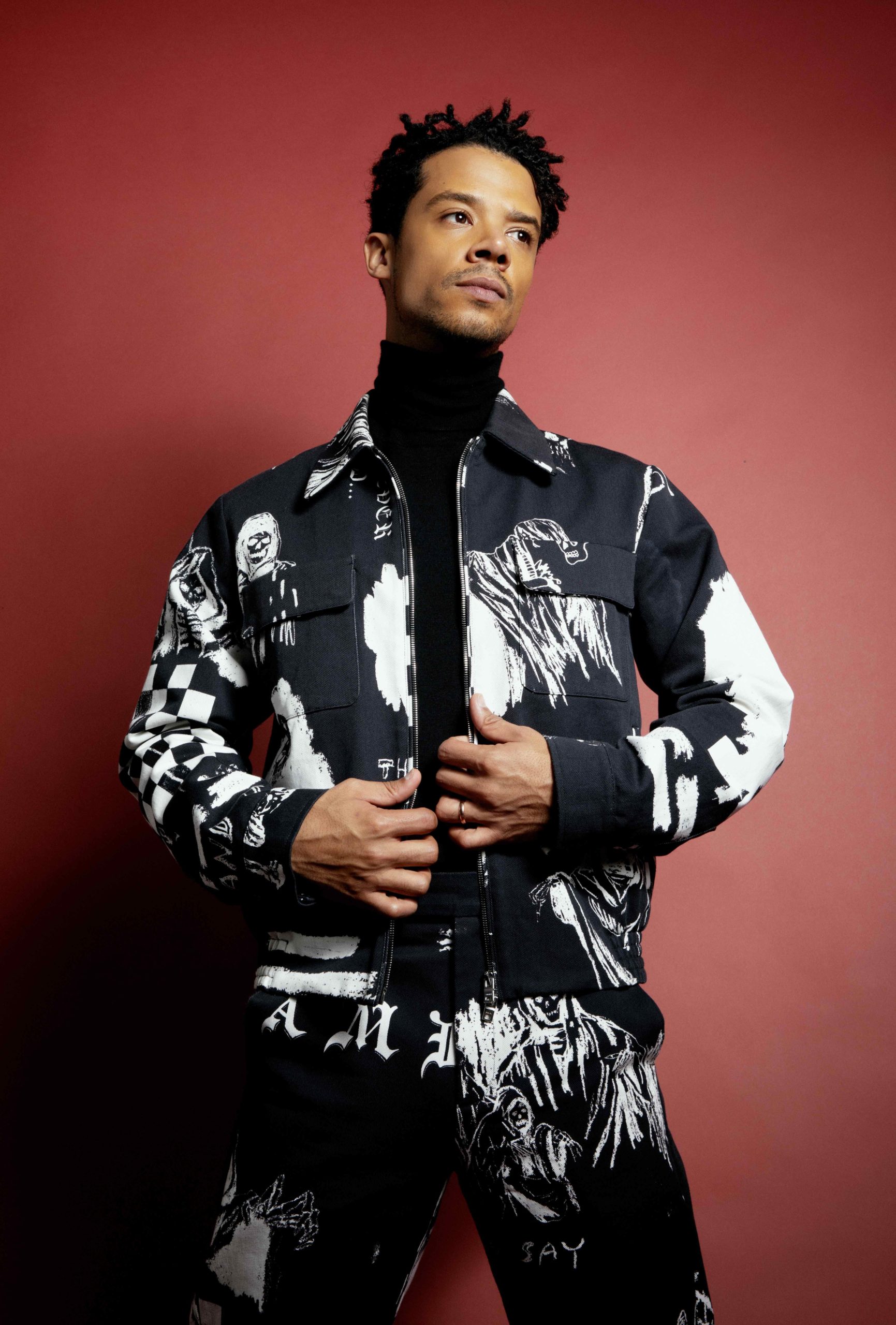
VMAN: That’s great. You said you felt seen when you read the script. What were some of the similarities between you and Louis?
JA: Louis’ central question is about morality, and that really spawns from guilt, and from shame and grieving. I felt like he’s constantly in a place of searching, and trying to make sense of what he is, or what his existence means. I live with and manage various mental illnesses that I’m sure a lot of us do. But I think Louis’ specific things, particularly as they pertain to race and his identity, how he’s perceived, and this shame—I won’t get into specifics but I think so much of my anxious thoughts are around shame that I can’t even place very well. I go to therapy and I work on trying to place that, but it means that I’m in a state of thinking constantly, to the point where my brain can sort of overheat. And I felt like that’s where Louis is at, where Louis has been at for a long time. I felt like I understood him in that way, and he understood me.
VMAN: Do you feel that helped color the character a bit more? Being able to pull from experiences that you had?
JA: It definitely helps. Again, because I didn’t have training, I definitely dig into what I know. The things you don’t know, you can research or you can extend your empathy, but yeah. It all comes from within somewhere. I think there are many alternate universe versions of this Louis that could have existed. I’m not the only person that could have played this part, I’m sure. But something about the way that this this version has been told, it made sense for me to be doing it. I feel very connected to Louis, I love him. It was really important to me to be honest in portraying him, and that requires you to dig into your own guts a little bit, pull it out, and show it to people.
VMAN: Can you walk us through the process of getting the role?
JA: It was a pretty standard process really. I got sent a breakdown and the pilot, and some sides, and just really connected with it on a very deep level. Sometimes there are jobs I’ve gotten where I was like, “Okay, I can play this.” That’s part of my job. With this, I was like, “No, this already feels like it’s in my body.” I don’t know the full story, but I think I almost lost the part at one point. I think my confidence got to me. It was a long process, and it felt like a proper goal.
VMAN: And what was it like working with the team? How was that entire experience for you?
JA: Part of the way that they put this all together was that we all had something in common with the story or with the characters. Mara LePere-Schloop, the production designer, is from New Orleans, and she’d been an Anne Rice fan since she was a teenager. She had to design this show almost like a calling. Shooting this show in New Orleans, where it’s set and where Anne Rice is an important figure, she really matters to people over there. It felt like there was a lot of love that went into it, and it felt like everybody approached it in a really personal way. And because we’re shooting through the night, it’s this sort of secret time. Nobody’s even looking at their phones because everybody’s asleep. We’re all in it together and people are awake, it felt really special. I was there every day, so I can vouch for the energy. It’s the most amazing crew I’ve ever seen, to do that for that length of time and maintain that energy. It was amazing.
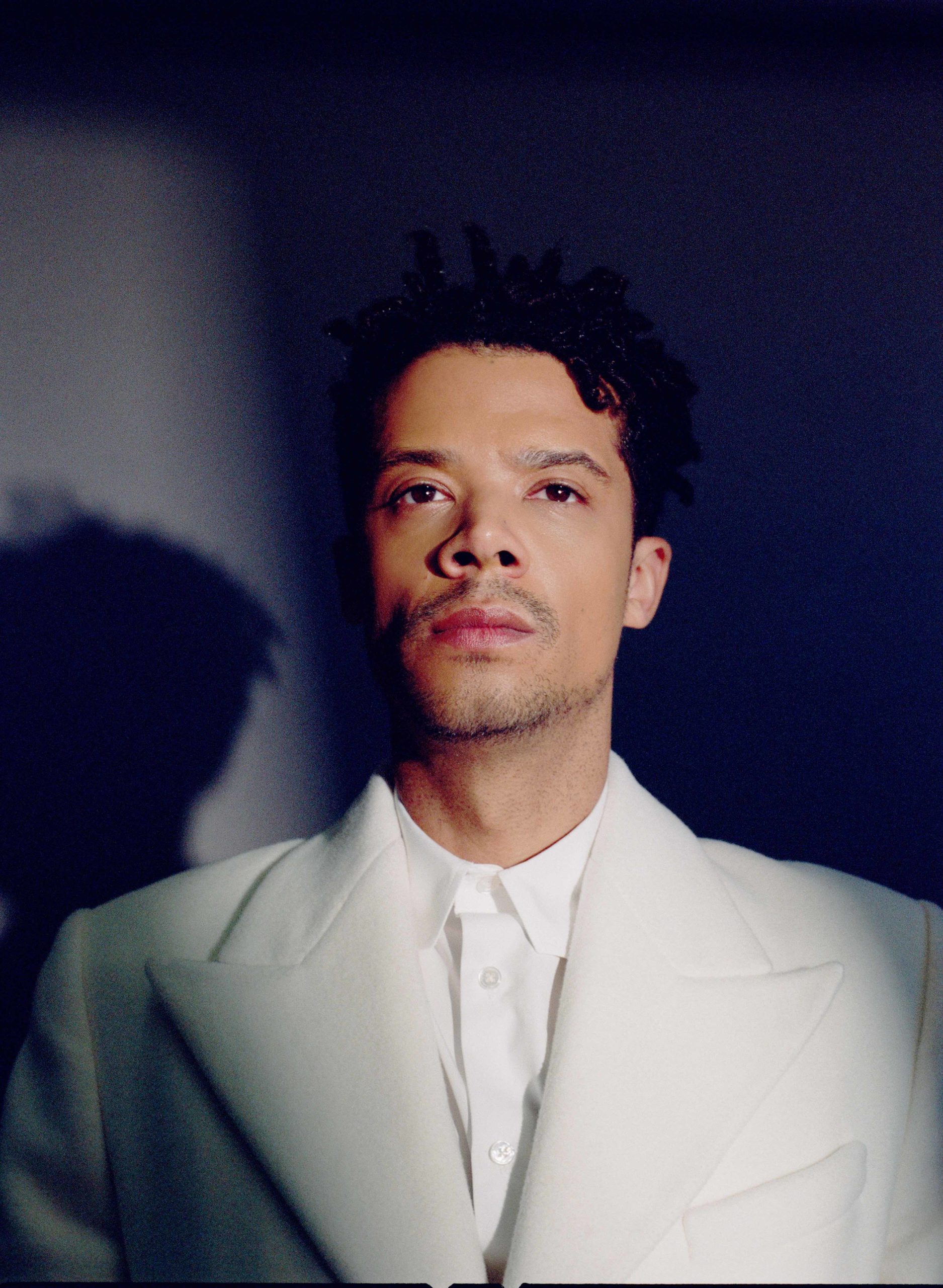
VMAN: I think that all comes through as a viewer. You can tell that everyone was passionate about what they were doing. From the director, to the actors of course, but even with the wardrobe and makeup.
JA: Yeah, it’s a very passionate show in every way you can imagine.
VMAN: As we bring this interview to a close, can you talk about what you learned through playing this role and what you hope people gained from watching the show?
JA: I always hope that whatever I am involved with helps people to feel understood or seen, where they feel it on a guttural level. That’s something that storytelling, whether it was films or TV or books, comics or music, always has done and does for me. It’s a way that I can understand myself. It’s a way of articulating your own feelings when you can’t articulate them yourself, via somebody else’s story. I hope that we’ve made something that does that for other people. In terms of what it has done for me, I really fell into a flow making this show that is really unique, and doesn’t always happen. It’s something that I normally feel when I make music, where I’m completely able to focus. Doing this was really cathartic, playing Louis. The process of playing somebody who is trying to explore who he is, and to do that without shame or apology, I found that really therapeutic. Even speaking certain things through Louie’s mouth rather than my own was really helpful. There’s things that I wouldn’t necessarily find easy to articulate because I’m not very good at talking. I was saying earlier about acting, it used to be a thing that I did, because I could get out of my own head, and I could be somebody else for a bit. This kind of felt like the opposite of that, it felt like I was able to really tap into something about myself in a way that was safe and unboundaried. It functioned more as an exercising catharsis than anything else. That felt really special to me.
Grooming: Taylour Chanel (The Only Agency)
Special thanks: Sunshine Sachs Morgan & Lylis
Discover More
